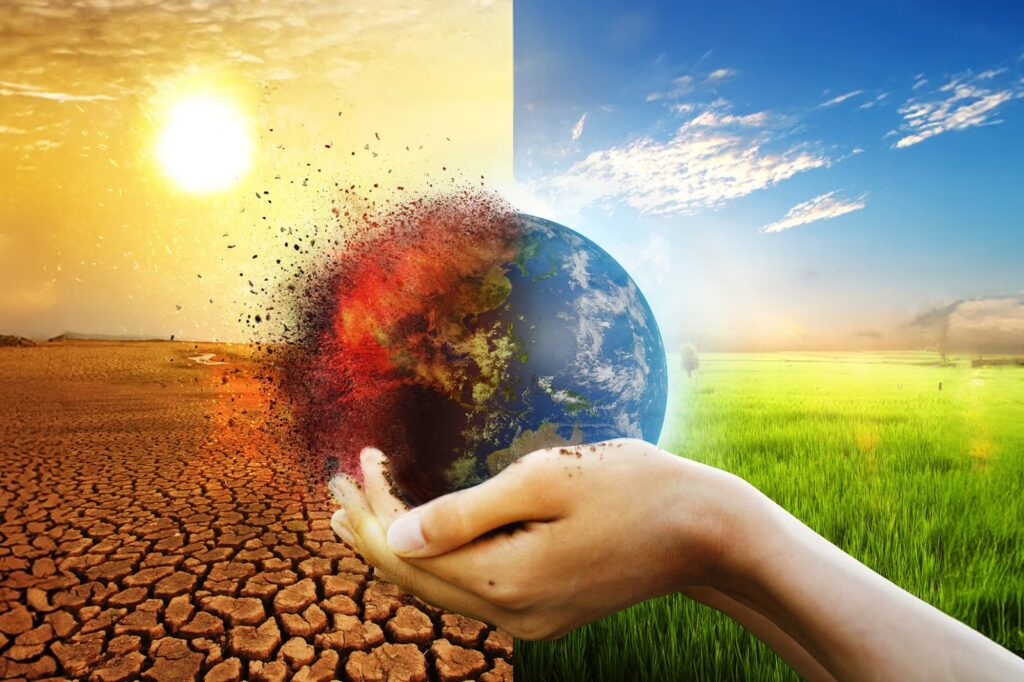In an era where our planet’s health has become the focal point of scientific, political, and social discourse, global warming emerges as a critical concern that demands immediate and concerted effort. The phenomenon of global warming, characterized by the unprecedented rise in Earth’s average surface temperature due to human activities, poses a multifaceted threat to global ecosystems, weather patterns, and sea levels. This blog delves into the urgent necessity to address global warming, exploring its causes, impacts, and, most importantly, the strategies we can employ to mitigate its effects and safeguard our planet for future generations.
Unpacking the Causes of Global Warming
At the heart of global warming is the greenhouse effect, a natural process essential for life on Earth. However, human activities, particularly the burning of fossil fuels like coal, oil, and natural gas, have dramatically increased the concentration of greenhouse gases (GHGs) in the atmosphere. This escalation traps more heat, leading to a rise in global temperatures. Deforestation, industrial processes, and certain agricultural practices further exacerbate the concentration of GHGs, accelerating the pace of global warming.
The Far-reaching Impacts of Global Warming
The consequences of global warming are profound and far-reaching, affecting every corner of the globe:
- Extreme Weather Events: The frequency and intensity of extreme weather events, including hurricanes, droughts, heatwaves, and heavy rainfall, have increased, causing devastation to communities and ecosystems.
- Rising Sea Levels: The warming of the planet has led to the melting of polar ice caps and glaciers, contributing to rising sea levels that threaten coastal communities and habitats.
- Loss of Biodiversity: Global warming disrupts ecosystems, leading to the displacement or extinction of species unable to adapt to rapid temperature changes.
- Agricultural Impact: The changing climate affects crop yields, food security, and the livelihoods of millions dependent on agriculture.
- Human Health: The effects of global warming extend to human health, with increased risks of heat-related illnesses, vector-borne diseases, and respiratory conditions due to air pollution.
Strategies to Combat Global Warming
The battle against global warming requires a multi-pronged approach, encompassing policy, innovation, and individual action:
- Renewable Energy: Transitioning to renewable energy sources, such as solar, wind, and hydroelectric power, can significantly reduce GHG emissions.
- Energy Efficiency: Enhancing energy efficiency in buildings, vehicles, and appliances can lower energy consumption and emissions.
- Reforestation and Conservation: Planting trees and conserving forests can absorb CO2 from the atmosphere, playing a crucial role in combating global warming.
- Sustainable Agriculture: Adopting sustainable agricultural practices can reduce methane emissions and enhance carbon sequestration.
- International Cooperation: Global warming is a global challenge that requires international cooperation to establish and adhere to emissions reduction targets.
- Public Awareness and Education: Raising awareness about the causes and impacts of global warming can motivate individuals and communities to take action.
The Path Forward
Combating global warming is an imperative that transcends borders, sectors, and ideologies. It calls for a unified global response, leveraging technology, policy, and behavioral change to forge a sustainable future. While the challenges are daunting, the collective ingenuity, determination, and action of humanity can pave the way towards stabilizing our planet’s climate. As individuals, we hold the power to contribute to this global effort through our choices and actions—be it by reducing energy consumption, supporting sustainable practices, or advocating for climate action. Together, we can turn the tide against global warming, ensuring a livable and thriving planet for generations to come. The time to act is now; our planet’s future depends on it.









